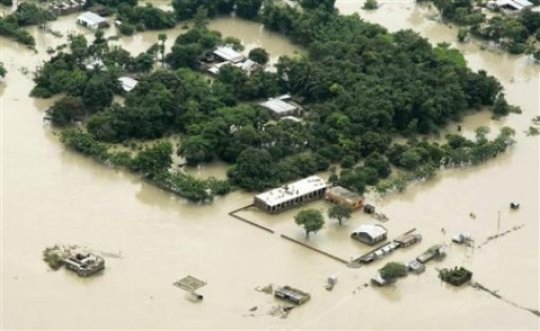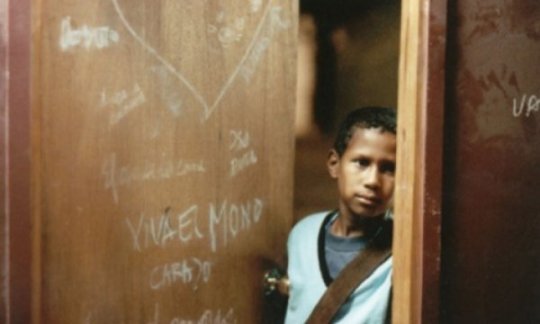September 15, 2009
Fortunately or unfortunately, this is going to be my last post on this blog 😐
I know it isn’t fair to have a blog and allow it to decay without posting for a long time. But, I’m not able to spend enough time updating blogs, so I’ll have to let some go. Sadly, this one gets the axe. I’m not going to delete it and anyone can make free use of whatever little is present here. There will be no more posts on this blog 😐
As a last hurrah, enjoy this poem:
Tax his land,
Tax his bed,
Tax the table
At which he’s fed.
Tax his tractor,
Tax his mule,
Teach him taxes
Are the rule.
Tax his cow,
Tax his goat,
Tax his pants,
Tax his coat.
Tax his ties,
Tax his shirt,
Tax his work,
Tax his dirt.
Tax his tobacco,
Tax his drink,
Tax him if he
Tries to think.
Tax his cigars,
Tax his beers,
If he cries,
Tax his tears.
Tax his car,
Tax his gas,
Find other ways
To tax his ass
Tax all he has
Then let him know
That you won’t be done
Till he has no dough.
When he screams and hollers,
Then tax him some more,
Tax him till
He’s good and sore.
Then tax his coffin,
Tax his grave,
Tax the sod in
Which he’s laid.
Put these words
Upon his tomb,
“Taxes drove me
To my doom…”
When he’s gone,
Do not relax,
Its time to apply
The inheritance tax. 😯
🙂
This poem is NOT my own. It was written by an American who is fed up with the amount of taxes levied in his country but it’s true for almost any country on Earth. He feels taxes are a form of theft by the crooks of big government 😡 I tend to agree with him. There is a reason why tax-collectors were despised creatures even in Biblical times.
Finally, it’s time to bid adieu. Thanks a lot, my dear friends! 🙂 Thank you, WordPress! 🙂 Wish you all good luck, great health, prosperity and eternal happiness!
Adios! 🙂

Posted in American taxes, American taxpayers, bloggers, blogging, blogs, friends, goodbye, humor, humour, last hurrah, life, poem about taxes, poems, poetry, random, satire, saying goodbye, tax, tax dollars, tax poem, tax theft, taxes, USA, views, WordPress, world | Tags: American taxes, American taxpayers, bloggers, blogging, blogs, friends, goodbye, humor, humour, last hurrah, life, poem about taxes, poems, poetry, random, satire, saying goodbye, tax, tax dollars, tax poem, tax theft, taxes, USA, views, WordPress, world |
September 6, 2008

Image://cache.boston.com
There can be no sage,
Who can withstand her rage.
Once she decides to change her course,
She unleashes a deadly force.
The surging mountains of water,
Inevitably end in a slaughter.
She spares neither beast nor man,
For she is no ordinary woman.
She may appear to be calm and still,
Until she decides to kill.
Who do you think is this she?
It’s none other than the river Koshi.
[The river Koshi (also spelt as Kosi) is known as the Sorrow of Bihar 😦 ]

Posted in Bihar, calamity, disaster, floods, India, Koshi, Kosi, life, natural disaster, Nature, Nepal, poetry, random, rivers, Sorrow of Bihar, South Asia, thoughts, Uncategorized, world | Tags: Bihar, calamity, disaster, floods, India, Koshi, Kosi, life, natural disaster, Nature, Nepal, poetry, random, rivers, Sorrow of Bihar, South Asia, thoughts, world |
September 5, 2008
Mother Teresa . . .

Image: http://greenthumbnun.info
Humans may come and humans may go,
But she said, “No!”
To those who asked her:
“Why do you bother?”
She was the last hope,
For those who could not cope.
She was the only source of light,
For those who had given up the fight.
She knew no fate,
For she did not hate.
Blessed indeed are those,
Who walked the path they chose.
She is not dead,
For it was humanity that she lead.
She still visits those with no hope,
For she is the Saint of Hope!

Posted in Albania, Anjezë Gonxhe Bojaxhiu, Calcutta, Catholicism, child rights, children, Christianity, City of Joy, heroes, hope, human rights, humanitarian, humanity, India, Kolkata, life, love, Macedonia, Missionaries of Charity, Mother Teresa, nun, poetry, random, religion, rights, Roman Catholic Church, Saint of Hope, saints, social worker, South Asia, spirituality, thoughts, tribute, West Bengal, world | Tags: Albania, Anjezë Gonxhe Bojaxhiu, Calcutta, Catholicism, child rights, children, Christianity, City of Joy, heroes, hope, human rights, humanitarian, humanity, India, Kolkata, life, love, Macedonia, Missionaries of Charity, Mother Teresa, nun, poetry, random, religion, rights, Roman Catholic Church, Saint of Hope, saints, social worker, South Asia, spirituality, thoughts, tribute, West Bengal, world |
August 26, 2008
It was completely silent, calm and dark. Then all of a sudden, he could see something bright, though his eyes were closed. A dog started barking near him. He opened his eyes slowly to see the dog chasing another one away. The sun had just risen, interrupting his sleep. In any case, he had to get going as the corner shop owner would arrive soon and open the shutters of his shop. The old man was one of the four friends Max had. He considered himself lucky to have them as friends because he did not have anyone else in this world. Max was a street child who slept on the doorstep of the corner shop.

Image: newsblaze.com
He picked up his bag that he also used as a pillow. Inside the bag were the few things that he possessed. A few clothes that were on the verge of tearing apart due to repeated use, two notebooks and a pen and blanket that he used if it was cold. He had a bath in the small bathroom that was shared by a few shops where he also hung up his clothes after washing them. When he returned to the shop, the shopkeeper had already begun his business. Max tossed his bag into the space below a bench in one corner of the shop. The old man gave him a few slices of bread and some jam. Out of pity for the homeless child, the old man allowed him to sleep on his doorstep and also provided him with breakfast. Max also did a few odd jobs for the shopkeeper for which he was paid a few rupees.
During the day, Max roamed the streets of Chennai. He earned a few rupees daily by picking up recyclable scrap from dust-bins and selling them to a scrap merchant. Sometimes he would wash cars and at other times, he would sell small stuff at traffic signals to earn a tiny amount. He spent almost all the money he earned on buying food. His second friend was another street child called Udaya. His third friend was the kind Catholic priest who taught street children to read and write during the evening. He also provided them with clothes, blankets and food. His fourth friend was a dog called Chip. Max and Udaya had found Chip as a pup when he was abandoned by his mother. They fed him and took care of him and the faithful dog would sometimes accompany Max or Udaya as they went about doing what they did.
Apart from these three humans and the dog, everyone hated Max. Who would like a street urchin? People tried to avoid him. Policemen chased him away with their lathis (long wooden batons). School going kids of his age shunned him and would shout at him if he watched them play cricket. He badly wanted to take part in such games but the kids would never allow a street child to play with them.
He would play marbles with Udaya. In the evenings, after their “classes” in the Church with the priest, the street kids played football in the backyard of the Church. The kids were very grateful to the kind priest. He not only taught them to read and write in Tamil and English but also taught them basic mathematics, science, history and geography. He also taught them to speak English. Max could understand common English and could speak a few sentences as well.
What he did not understand was why people hated him. He was rudely sent away if he went up to people to sell small things. People called him names that he hated. They would call him a “street urchin” which he did not like at all. Worse, they would call him a “beggar” though he never asked for alms or food. Infact, if someone offered him money without buying the stuff that he sold, he would decline it and walk away! What made his blood boil was when someone suspected him to be a “thief” or a “pick-pocket” and tried to make sure of their belongings when he went near them. He had never stolen even a small thing in his life! They suspected a hard-working street child of being a thief when people who swindled millions of rupees were called “eminent persons” as they held positions of power! What a shame!
(To be continued)

Posted in Chennai, child, child rights, childhood, children, children's stories, fiction, hope, life, random, short story, story, street child, thoughts, world | Tags: Chennai, child, child rights, childhood, children, children's stories, fiction, hope, India, life, random, short story, South Asia, story, street child, thoughts, world |
July 24, 2008

Image: idrcngo.com
I looked at their hands,
They were red with clay,
Not modelling clay but burnt clay!
I looked into their eyes,
In them, I saw a burning fire,
The reflection of the brick kiln’s fire!
I looked on as they played,
Like other kids, they were stacking bricks,
Not LEGO bricks but real bricks!
I looked into their souls,
They asked me why they were doing this – why?
Can someone tell me why?


Posted in child, child labour, child rights, childhood, children, hope, human rights, life, poetry, questions, random, rights, thoughts, world | Tags: child, child labour, child rights, childhood, children, hope, human rights, life, poetry, questions, random, rights, thoughts, world |






